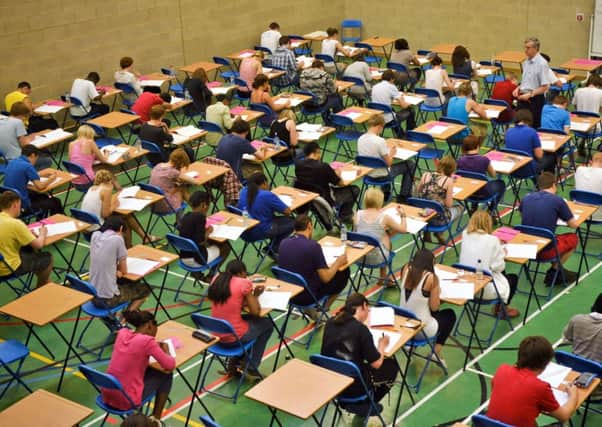Standards club questions logic of Government’s exam changes


Teachers were told last year that only a pupil’s first attempt at GCSEs would count toward their school’s league table scores.
The move was seen as an attempt to stop schools putting pupils in early in an attempt to boost the student’s chances of getting a good grade.
Advertisement
Hide AdAdvertisement
Hide AdIt meant many schools did not risk putting pupils into GCSEs in year 10 because it would harm their figure for students getting at least five good passes including English and maths – which has been the measure on which they are judged by Government.
However, Sir John Rowling, the chairman of the PiXL (Partners in Excellence) Club, has questioned the move. PiXL worked with more than 400 schools entering pupils for GCSEs this year, including about 50 in Yorkshire.
Members of the club collaborate to improve pupil performance, particularly at GCSE level.
Sir John said: “Why has there been an attempt to stop pupils sitting GCSEs twice when at the same time it has been announced that those who do not get maths and English at GCSE will have to resit them afterwards anyway?
“Where is the logic in that decision?”
Advertisement
Hide AdAdvertisement
Hide AdSir John said that discouraging schools from entering pupils early during the past academic year has adversely affected those with a higher proportion of students on the C/D borderline.
This echoes comments made by the Thornhill Community Academy headteacher Jonny Mitchell on GCSE results day.
Mr Mitchell, made famous by Channel 4’s Educating Yorkshire TV series, feared that these reforms would hit schools serving the most deprived communities the hardest after seeing his own English pass rate fall this summer.
Sir John said early entry had been an effective way of improving a student’s performance when they took a GCSE a second time. Nationally it has been reported that the proportion of pupils getting grade C or better at English fell while maths was up 3.9 per cent this summer.
Advertisement
Hide AdAdvertisement
Hide AdHowever Sir John said that this was because of fewer pupils being entered into the qualification early. He warned that many PiXL schools had seen their proportion of pupils achieving five A* to C including English and maths figure drop because of students missing out in maths.
Sir John claimed about half the schools PiXL works with had seen their GCSE benchmark figure fall this year.
He added: “The changes have not hit the high performing schools as hard. Its like playing golf. When you look at the score you also have to look at the circumstances. If they suddenly made the course tougher you would still expect Rory McIlroy to get round, but I would have a terrible time.”
Ofqual had warned schools this year to expect “variability” in this summer’s GCSE results because of the scale of reform the qualification had seen. There has been a move to end-of-course exams, more students taking international GCSEs, cuts to re-sits, a toughening up of GCSE geography, and the decision that only a pupil’s first attempt at a GCSE would count in league tables.